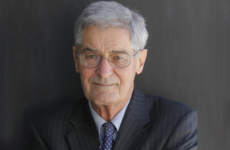My partner was caught at the Istanbul Airport during the latest terrorist attack. She hid in a closet with a few people, including a small girl, disconcerted and afraid. And when the attack was over, she saw the blood, desolation, chaos, and tears of the aftermath. This was a horrific moment. Yet, it paled in comparison to what the injured and dead and their relatives had to suffer.
It seems that terrorism and political violence are becoming more prevalent and intense. They have been, however, long in the brewing and have affected many countries around the world. In the 1980s, my home country, Peru, suffered immensely from terrorism: The badly called “Shining Path” organization, with its communist ideology and ruthless tactics, terrorized first rural communities and then large cities, with deadly bombs in crowded places and assassinations of official and civil society leaders.
A few years ago, Phil Keefer and I edited two books on what we perceived to be the main security threats of our time: terrorism and drug trafficking. We thought that the answers had to come from research, and we tried to gather the best available evidence and arguments to understand the links between these security threats and economic development.
After the myriad of recent terrorist attacks –in Istanbul, Munich, Nice, Bagdad, Brussels, and Paris, to name a few– we should review what we have learned about terrorism. These lessons are not just academic: Understanding its root causes can lead to policies to prevent terrorism and mitigate its effects. To defeat terrorism, a policy strategy should include three components: Intelligence, Integration, and Development.
Intelligence. A terrorist attack is relatively easy to conduct. Modern societies offer many exposed and vulnerable targets: an airport, a crowded celebration by the beach, a bus station at peak hours, a restaurant full of expats. And the potential weapons are too many to count: a squadron of suicide bombers, a big truck ramming through the streets, two or three comrades armed with semi-automatic guns. It is impossible to protect all flanks, and some of the measures taken to prevent the previous terrorist attack are, well, frankly silly. For a strategy to have any chance against terrorism, it should be based on intelligence. Intelligence implies understanding the motivations, leadership structure, and modus operandi of terrorist organizations, and developing a plan that can anticipate and adapt to their constantly morphing operations. Importantly, the ideological dimension should not be ignored because it explains the extremes to which terrorists are willing to arrive: A suicide attack requires a person who has muted both his basic survival instinct and all sense of natural compassion for others. It was radical communism in the 1970s and 1980s; and it is a perverted and fanatical misrepresentation of Islam nowadays. An intelligent strategy that targets the sources of terrorism, both the perpetrators and the social movements that underlie them, should be the first component of the campaign against terror.
Integration. Foreigners living in the US like to make fun of Hollywood movies and the social rituals that Americans go through every year: Halloween and Thanksgiving are in many respects more popular than Christmas. Yet, thanks to these cultural mores along with widespread economic opportunities and equality under the law, the US has mostly succeeded in what many countries, including some European ones, have failed: the integration of people of different ethnic, religious, and cultural backgrounds. The US is no paradise of integration, but the social melting pot does work for immigrants: within a generation or two, Mexican Americans, Italian Americans, Iranian Americans are just Americans, with a single national identity and, at least by law, the same rights and obligations. In some European countries, in contrast, many immigrants feel like second-class citizens. There is little that can inflame more hatred than the feeling of being excluded, and a misguided search for a sense of belonging can be the trigger that incites religious, ethnic, and ideological radicalization. This may explain why France has suffered more from terrorist acts perpetrated by their own residents than the US or the UK, who paradoxically are substantially more engaged in the war against ISIS and Al-Qaeda. Social integration –especially of immigrants—through explicit and targeted programs from education at an early age to immigration and citizenship reforms is a key component in the fight against terrorism.
Development. One of the puzzles in the evidence on terrorism is that while it tends to be led (and sometimes even perpetrated) by well-off and educated people, it represents the complaints and grievances of the disenfranchised, the poor, and the unemployed. The hundreds of thousands of unemployed and discouraged young men in places as diverse as Afghanistan, Somalia, South Africa, and Brazil are the potential armies of common and political violence. In South Africa and Brazil, lacking an overriding communal ideology, this violence is expressed in robberies, homicides, and common crime. In Afghanistan, Iraq, and Syria, the violence is mostly political, taking the shape or at least the cover of religious fundamentalism. Somehow in Somalia, violence has adopted both criminal and political expressions: We worry about Somali pirates as much as we do about Somali jihadists. (On the link between vulnerable youth and violence, it is telling that the name of the main terrorist organization in Somalia, Al-Shabaab, means literally “The Youth.”) But there is hope. A couple of decades ago, thousands of unemployed young people joined terrorist organizations in Cambodia, Colombia, and Peru, when these countries were fragile. Since their economies started growing and providing employment, the potential armies for criminal and political violence have started to fade away. Investing in development, conducting economic reforms, and providing (yes, equal) opportunities is the third component of a winning strategy against terrorism.
A sound military and police strategy is undoubtedly important to counter terrorism. However, it’s not sufficient in the long run. If we want to defeat terrorism permanently and completely, we need to tackle it comprehensively: with political and military intelligence, social integration, and economic development.
From more, please see Keefer, Philip and Norman Loayza, Editors. Terrorism, Economic Development, and Political Openness. Cambridge University Press. 2008.





















